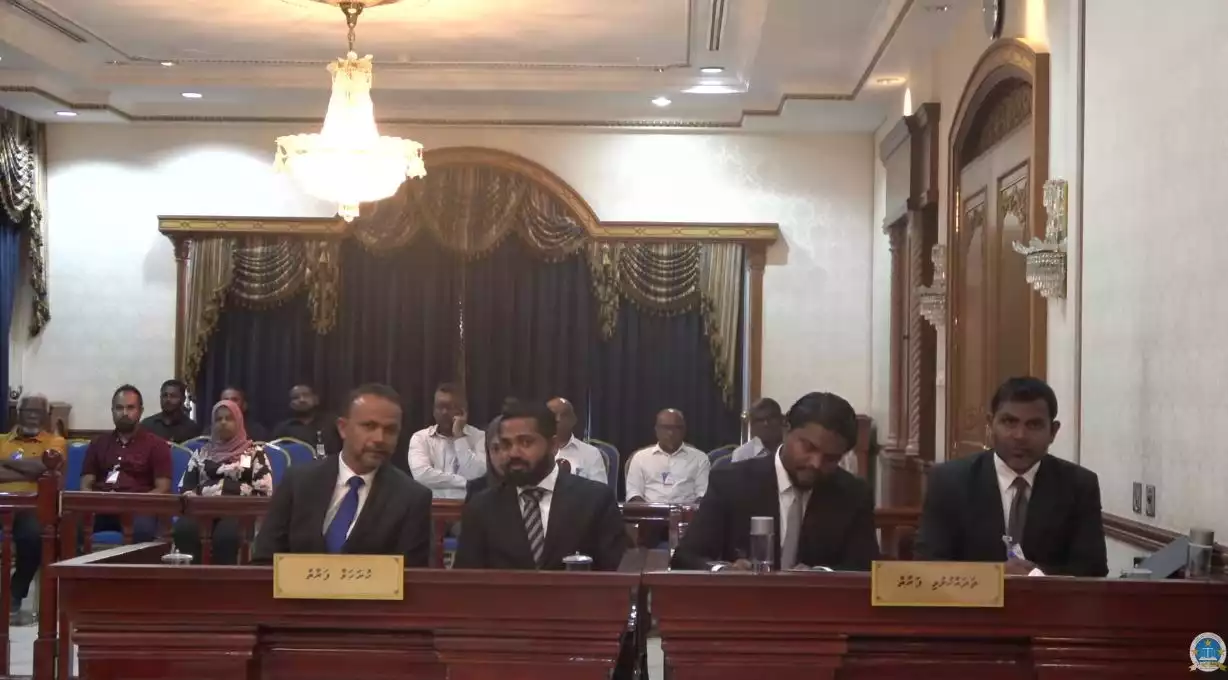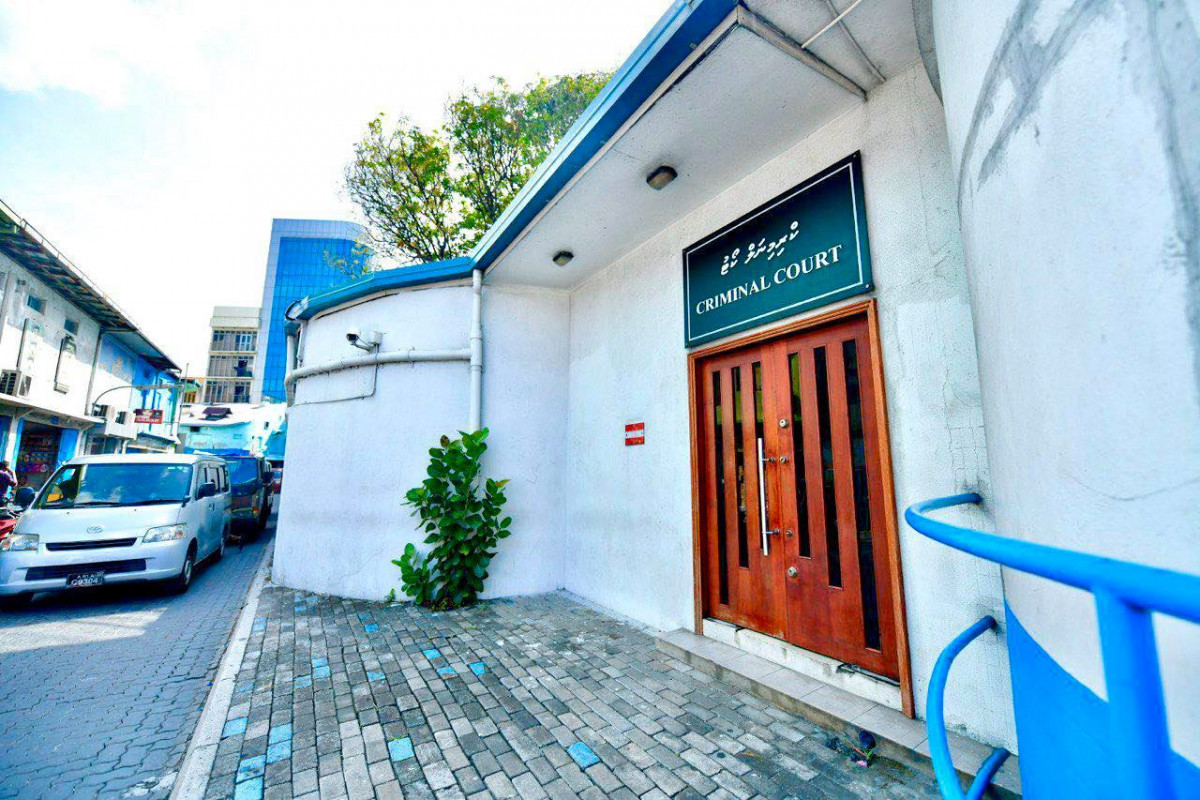Information Comm'r gives Malé City Council a week to disclose remuneration details
Right to Information Act states that access to information from a State Institute is a legally enforceable right available to every person requesting

Information Commissioner, Hussain Fiyaz Moosa
The Information Commissioner's Office (ICOM) held a hearing with Male' City Council as the council had refused to disclose remuneration details as stated under the Right to Information (RTI) Act following a request submitted by a member of the public, Aimon Latheef.
Information Commissioner Hussain Fiyaz Moosa presided over the hearing, which was held via online meeting, with Ali Naseer Gasim representing Male' City Council in his capacity as their Associate Legal Counsel. Ali Naseer Gasim questioned in his opening argument which legislation required a citizen to disclose personal information and details of private finances before a specific deadline.
The Information Commissioner declared that remuneration details for members of the Male' City Council would not be considered as personal finances as their salaries are procured from public funds.
Throughout the hearing, the the Information Commissioner vocalized displeasure at Male' City Council denying provisions stated in the RTI, and explained that Article 37 of the RTI ratified in 2014 clearly states that, all State Institutions must publish information related to the remuneration and benefits received by all employees of that Institute for the purpose of public interest. He added that the ICOM was not demanding recipients of remuneration be named, only that the details of the remuneration be made public as stated under the RTI.
Male' City Council's argument against the request made for remuneration details is that they do not have to oblige a request submitted by an individual as Article 37 of the RTI Act requires them to do so proactively.
Gasim stated that Male' City Council has always maintained remuneration details will be published, to which the Information Commissioner countered by saying that all State Institutions were required to follow the RTI, and that the ICOM was not tasked with issuing warnings and pleading for information that the City Council was legally required to disclose, without waiting to do so in their annual report.
Further, Information Commissioner Fiyaz also explained that the RTI required State Institutions to engage in proactive dissemination the information specified under Article 37 of the act annually, or in a shorter period. The Information Commissioner also noted that Male' City Council has yet to declare remuneration details even once following the ratification of the Right to Information Act into law in 2014, despite ICOM having communicated this to the council in writing in 2020.
The Information Commissioner declined to engage in a debate regarding the provision clearly stated in section (k) of the RTI which requires State Institutions to disclose individual benefits received by all employees of that Institute. While concluding the hearing, Fiyaz presented Male' City Council with a seven-day period in which they have to oblige citizen Aimon Latheef's request for information as it is a right reserved to him under the RTI Act.
Male' City Council Mayor Shifa Mohamed tweeted about the outcome of the hearing on Wednesday, expressing her support to disclose remuneration details for members despite vehement objections to do so on behalf of the council during the initial hearing.
Mayor Shifa said that she had instructed that the details be publicized before January 31, to which the citizen who had submitted the RTI, Aimon Latheef replied that the seven-day period presented to Male' City Council by ICOM would end on January 27, and that he expected that the information requested be shared with him, and the public, by January 28.
Speaking to RaajjeMV on Thursday, Fiyaz said that he had officiated the dispute between the Male' City Council and the private citizen in his capacity as Information Commissioner, and that there was no legal weight in the justifications being presented by Male' City Council to deny the citizen's Right to Information. He added that Male' City Council had already extensively delayed publicizing remuneration details for members, and that they still had the opportunity to disclose the information within the seven-day period, or even earlier if they intended to. He further expressed that it would be ideal for the Male' City Council to disclose the remuneration details as requested immediately.
The Information Commissioner also highlighted that this was the first time that a State Institution had presented such a strong objection to the Right to Information Act. He revealed that the ICOM Office had yet to encounter a government body that had so vehemently denied to perform their legal duty in providing information to the public, and that all State Institutions, with the possible exception of some State Companies, had thus far been compliant with the ICOM Office in disclosing remuneration information as required by the RTI Act.
Fiyaz declined to discuss potential legal action against Male' City Council should they fail to follow through within the week, but maintained that he would, as Information Commissioner, continue to advice all government intuitions to disclose information as stated in the RTI Act, and that he would not hesitate to press forward with action in such an instance that it is required.
Additionally, Fiyaz called for all government institutions to follow the legal provisions presented in the RTI Act and ensure members of the Maldivian public fully receive their right to information with regards to government operations. He noted that a request to information need not be submitted every time, and that the RTI Act required State Institutes to proactively disseminate the information detailed within it without being prompted by the public or the ICOM Office, or without waiting to publish the information in an annual report.
The Information Commissioner concluded by appealing to members of the public to familiarize themselves with the rights afforded to them under the RTI Act, and said it would be a key tool in holding government institutions accountable and ensuring transparency in the use of public funds.






